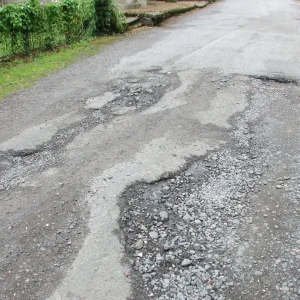Transport for London is planning to tighten the CO2 level at which cars can travel free within the congestion charging zone to 80g/km before the end of this year.
Currently, vehicles with CO2 figures of 100g/km or less can apply for a 100% discount on the £10-a-day fee. This exemption is known as the Greener Vehicle Discount (GVD).
Boris Johnson, having been re-elected as London mayor last month, is understood to be pushing for this to be lowered to 80g/km, the figure he first announced in 2010 when he previously tightened the GVD.
Toyota managing director Jon Williams, speaking exclusively to BusinessCar at the launch of the Yaris Hybrid, said: “We think the revised congestion charge limit will be 80g/km or 85g/km. Boris thinks 80g/km but there’s lobbying for 85g/km.
“It could be introduced by the end of the year following a September announcement.
“If it is 80g/km then we’ll look at doing a T-spirit Yaris Hybrid with smaller alloys to get it back to 79g/km.”
A TfL spokesman confirmed the 80g/km target for the GVD: “There will be a public consultation on the GVD, so it’s not going to be introduced in the next few months, but it is still the case that we’re looking at 2012.”
When the GVD was set at 100g/km, aside from electric vehicles, TfL listed just 28 qualifying cars. There are now more than 250 qualifying vehicles according to BusinessCar online tax calculator (www.businesscar.co.uk/taxcalculator).
It is expected those vehicles that have already gained a GVD before any cut in the CO2 level will be allowed to keep the discount for a short length of time.
When the 100g/km level was introduced at the end of December 2010, cars that already had the 100% discount but were above the 100g/km level were allowed to travel congestion-charge free until the end of 2012.
Fleets running vehicles with a GVD in London on a daily basis currently save £2500 a year per vehicle.
Commenting on the plans, a Society of Motor Manufacturers and Traders spokesman said: “The SMMT recognises the Government’s need for motorists to continue to make a fair contribution to the sustainability of public finances.
“As new vehicles continue to make improvements in CO2 emissions and fuel efficiency, it will be necessary for changes to be made to congestion charge levels and vehicle taxation.
“In discussions with Government, SMMT makes the point that changes to vehicle taxation should be proportionate, fair and clear, with appropriate visibility provided, enabling motorists to adapt their decisions accordingly.
“Any change in vehicle taxation and charges must also consider the ongoing development of new technologies, ensuring that their introduction to the marketplace is not adversely affected.”
Follow BusinessCar on TWITTER.





